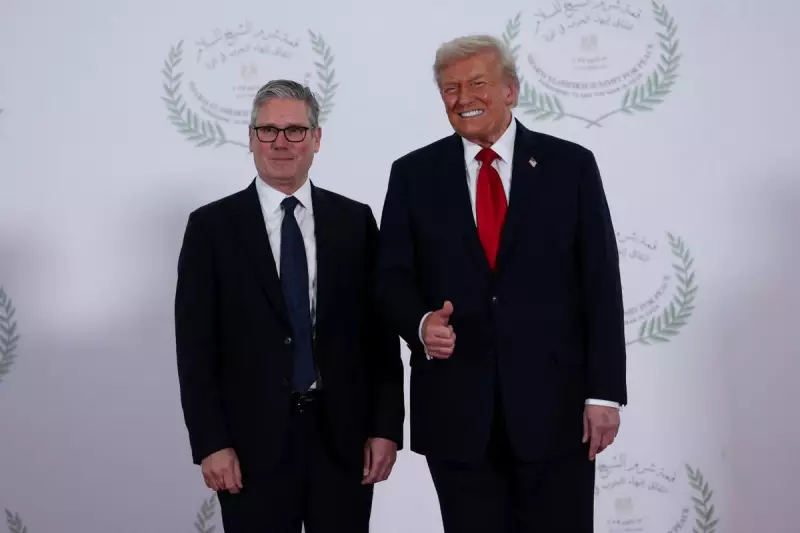
Prime Minister Sir Keir Starmer and US President Donald Trump have pledged to work together towards achieving a just and lasting peace in Ukraine during their second phone conversation in two days, as critical negotiations continue in Geneva.
Critical Moment for Ukraine Peace Efforts
The Sunday discussion between the two leaders came as US, Ukrainian, and European officials conducted what American Secretary of State Marco Rubio described as "the most productive and meaningful meeting" in the entire peace process to date. Sir Keir's national security adviser, Jonathan Powell, represented British interests at these high-level talks focusing on the American-drafted 28-point peace proposal.
A Downing Street spokesperson confirmed that both leaders agreed "we all must work together at this critical moment to bring about a just and lasting peace." The conversation covered various aspects of the ongoing negotiations in Switzerland, where significant progress appears to be emerging.
Breakthrough in Geneva Negotiations
US and Ukrainian officials reported substantial advancement in the talks, with Secretary Rubio and Ukrainian chief negotiator Andriy Yermak both acknowledging "good progress" had been made. According to Rubio, negotiating teams are currently working on suggestions and "making some changes" with the objective of narrowing differences between American and Ukrainian positions.
The positive assessment was echoed by Ukrainian President Volodymyr Zelensky, who indicated in a social media post that the US proposals might incorporate elements based on Ukraine's vision that are critically important for the country's national interests. This represents a potential shift from earlier concerns about the American-drafted plan.
Diplomatic Tensions and Security Guarantees
Despite the collaborative tone between leaders, underlying tensions surfaced when President Trump used his Truth Social platform to complain that Ukrainian leadership had expressed "zero gratitude" for American efforts, while also criticising European countries for continuing to purchase Russian oil.
The US peace plan, negotiated by Trump's special envoy Steve Witkoff with Kremlin representative Kirill Dmitriev, had previously drawn criticism for initially excluding Kyiv and European allies from the process. Sir Keir and other Western leaders had expressed concerns about proposals that would require Ukraine to limit its armed forces, surrender territory, and abandon its NATO membership ambitions.
However, a key element seen as potentially addressing some concerns involves the inclusion of an Article Five security guarantee - NATO's mutual defence provision that treats an attack on one member as an attack on all. This is understood to be "integral and significant" to Washington's proposed framework.
Transport Secretary Heidi Alexander emphasised the importance of British influence with Washington, stating that "our relationship with the US is one of seeking to influence to facilitate that dialogue with other global leaders." She stressed that allies need to secure a ceasefire to create space for meaningful negotiations.
The Prime Minister's office indicated that Sunday's discussions would involve national security advisers examining detailed aspects of the proposed settlement. Sir Keir has previously stated that his direct conversations with President Trump and the inclusion of security guarantees demonstrate the American leader's genuine desire for a sustainable peace solution.
While President Trump had initially demanded a Ukrainian response to his proposals by Thursday, he has since indicated flexibility, responding "no" when asked whether the American terms were final. This suggests room for continued negotiation as diplomatic efforts intensify towards ending the conflict.





